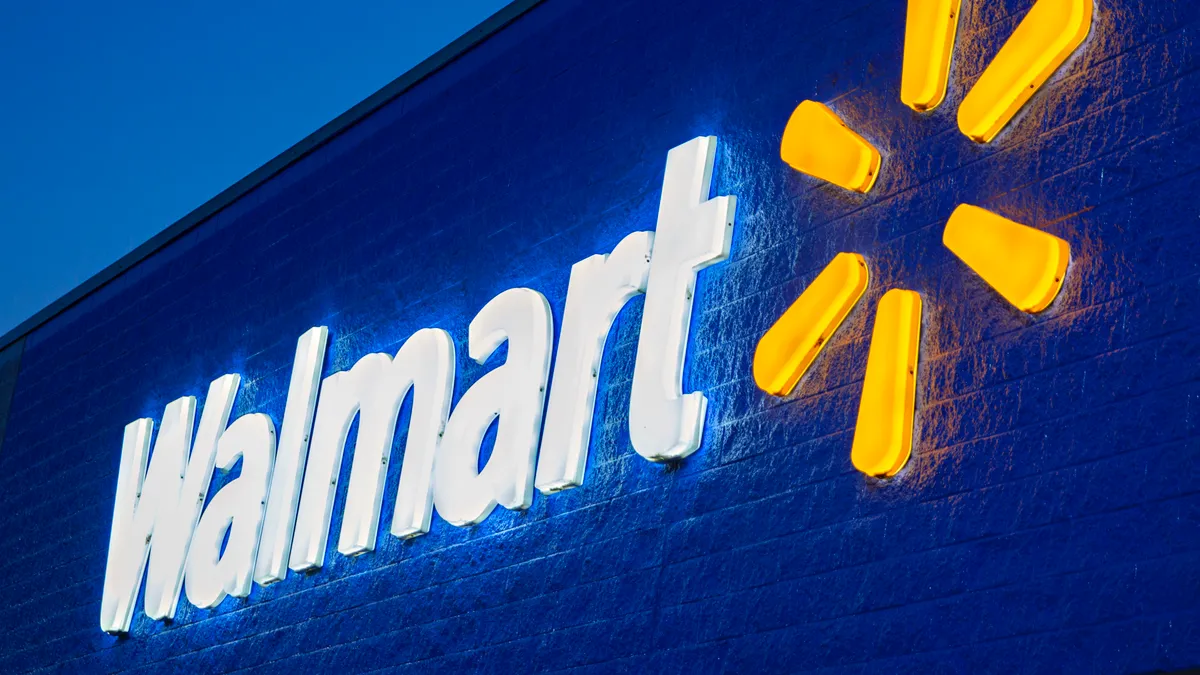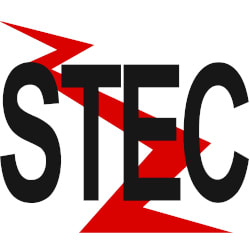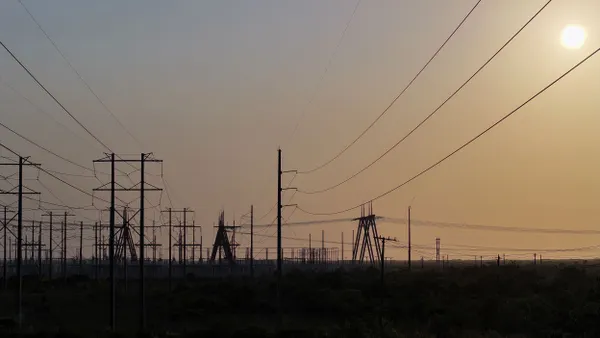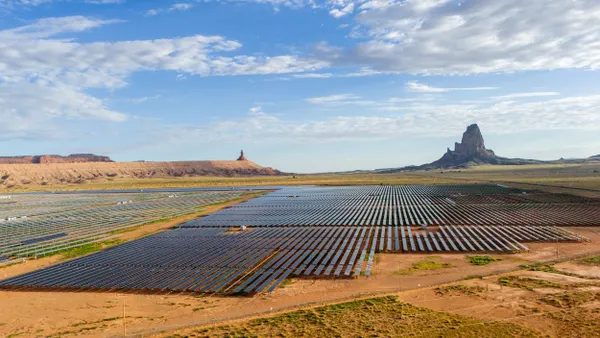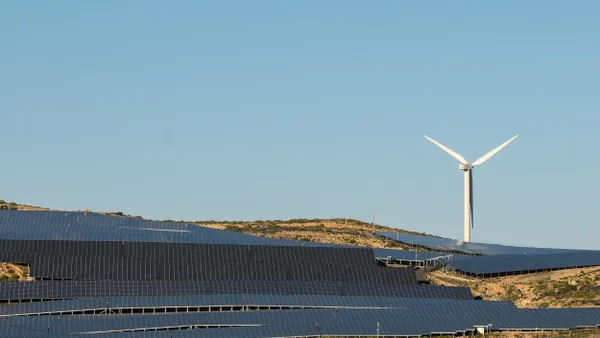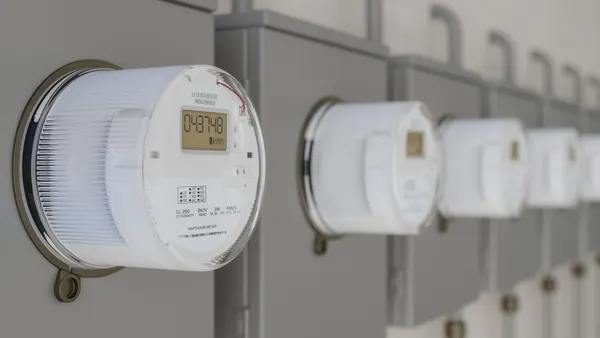Dive Brief:
- The Virginia Supreme Court on Thursday rejected Walmart's request to shop for a cheaper mix of energy, ruling that state regulators had discretion to deny the retail giant's proposal to aggregate store loads in order to reach a 5 MW threshold for utility customers to access retail choice.
- The Virginia State Corporation Commission (SCC) last week also approved an all-renewable tariff proposed by Dominion Energy, which stakeholders say closes off avenues for commercial customers to competitively shop for their energy supply. The approval "ends the conversation," Will Cleveland, senior attorney for the Southern Environmental Law Center (SELC), told Utility Dive.
- Retail provider Direct Energy says the court's decision "reinforces the on-going practice of allowing Dominion's interests to trump that of Virginia customers." Walmart officials say the company will continue to consider its energy options which could include a new state pilot program allowing it to shop for new supply.
Dive Insight:
Walmart may ultimately wind up being able to competitively shop for its energy supply, thanks to a new pilot approved by state lawmakers that allows for load aggregation exceptions to the state's utility monopoly.
But Direct Energy says the state Supreme Court's decision and Dominion's new tariff mean most customers have no options regarding their energy supplier and mix. And the retail provider argues customers who have switched from Dominion to a 100% renewable retail product are saving money.
"There's nothing more expensive than allowing Dominion to control all decisions around the green economy," Direct Energy Director of Corporate and Regulatory Affairs Ron Cerniglia said in a statement.
Virginia law requires customers to buy electricity from their incumbent utility unless they have a demand greater than 5 MW or are purchasing a 100% renewable energy product not offered by their utility. One other exception gave Walmart a pathway to shopping for its own energy — commercial customers may also aggregate the demand of multiple facilities to more than 5 MW, and then apply to the SCC for permission to shop. But state energy rules specify that regulators have discretion to approve or deny the request if it will harm other customers.
The SCC expressed concern that allowing Walmart to aggregate and shop for about 90 MW of load otherwise supplied by Dominion and Appalachian Power, a subsidiary of American Electric Power, would have respectively raised customer bills by $0.13 and and $0.05 each month. The court said it sided with regulators "because the commission exercised its delegated discretion in a manner consistent with its statutory authority."
"While we disagree, we respect the decision of the court and will move forward," Walmart Director of Energy Services Steve Chriss said in a statement. "We'll continue to look for opportunities to most effectively manage our energy needs in a way that supports our business."
Those opportunities could include a new pilot program approved by the Virginia General Assembly, though there are limits on how much load can be enrolled. Walmart may be able to competitively shop for energy under the new 200 MW program, but experts say there are still few options for Virginia customers with loads under 5 MW.
The SCC's approval of Dominion's 100% renewable energy option on Wednesday closes off another route for commercial customers to shop for their own supply, say clean energy advocates.
"Now that Dominion has an approved tariff, nobody is allowed to leave their territory to get 100% renewable energy," SELC's Cleveland told Utility Dive.
Dominion spokesperson Rayhan Daudani said in a statement that the utility remains "focused on offering a great value for our customers, large and small, as we transform the grid and expand our renewable offerings."
Direct Energy on Wednesday filed a petition for clarification of Dominion's approved tariff, arguing that customers with more than 5 MW of load should still be able to aggregate and shop regardless of the utility's new 100% option. The company says about 1,000 MW of customer load has switched to 100% renewable products since September 2019, highlighting the demand for energy options. And it argues Dominion's new renewable tariff does not allow customers any say over what type of green power is purchased.
"Not one customer or customer group expressed support for Dominion's renewable tariff," Cerniglia said in a statement. "Direct Energy and the growing coalition of environmental and business groups will continue to fight for the ability of customers to have choices when it comes to renewable options."



